Far South Chicago One Band. One Sound.

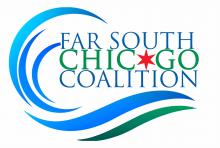
Advisory Committee | Engagement & Planning Phase, 2020-2021
The Advisory Committee for the Far South Quality-of-Life Plan was the governing body of both the engagement phase and planning process. Advisory Committee members mobilized their networks to participate in six in-person and virtual community summits, co-led working groups, and oversaw the planning process.
We are many bodies, but one mind, making a difference in the lives of the people of the Far Southside of Chicago.
Our vision is the Far Southside of Chicago will be a region:
-
Bridging the gaps and building widespread intergenerational communication and collaboration.
-
Unifying through equity and having scalable systems to measure outcomes of accountability and justice towards transformation.
-
Building new, healthy, sustainable family entertainment with thriving, viable business districts that are family-focused and safe.
-
Promoting diverse learning opportunities, training programs and life skills, work-study, and improving and sustaining traditional and non-traditional options.
-
Preserving and cultivating community and cultural pride by improving visibility and unity across the Far South region.
-
Beautifying and creating more awareness around green space, clean energy through the pride of ownership, and introductions to green economies and digital currency.
-
Circulating and recycling the community dollar in the Far South Chicago's Ethnic Wall Street by supporting each other economically.
-
Building career opportunities and encouraging entrepreneurship through the collaboration of workforce agencies in the Far South.
-
Enhancing community empowerment of all community members through activities like homeownership and improved housing opportunities.
-
Removing the mental health stigma and supporting self-care and caring for each other, especially our children in the legislative system.
We deserve the best
neighborhoods that are economically, physically, culturally, educationally, financially productive, successful, and safe for all those with a stake in the community.
The Far Southside of Chicago comprises historic communities that have undergone massive transitions over the years. The Far South Chicago Coalition identified an entire region and gathered meaningful parties to create the largest Quality-of-Life plan area LISC Chicago has ever focused on to assist coordination. COVID-19 has shed a brighter light on the worsening Black life-expectancy gap in Chicago.
With these factors at the forefront towards sustainable transformation, the strategies provided by the community address the necessary actions needed.
Keep up with us
This plan will be updated regularly as we implement the vision and strategies you see below and form more detailed action plans. Check back often, but the best way to stay up to date is to join us. We welcome all Far South residents and partners from within and beyond our communities who can help move forward this vision to join a committee. For more visit farsouthcc.org ,email info@farsouthcc.org or call 773-627-4829 to get involved.
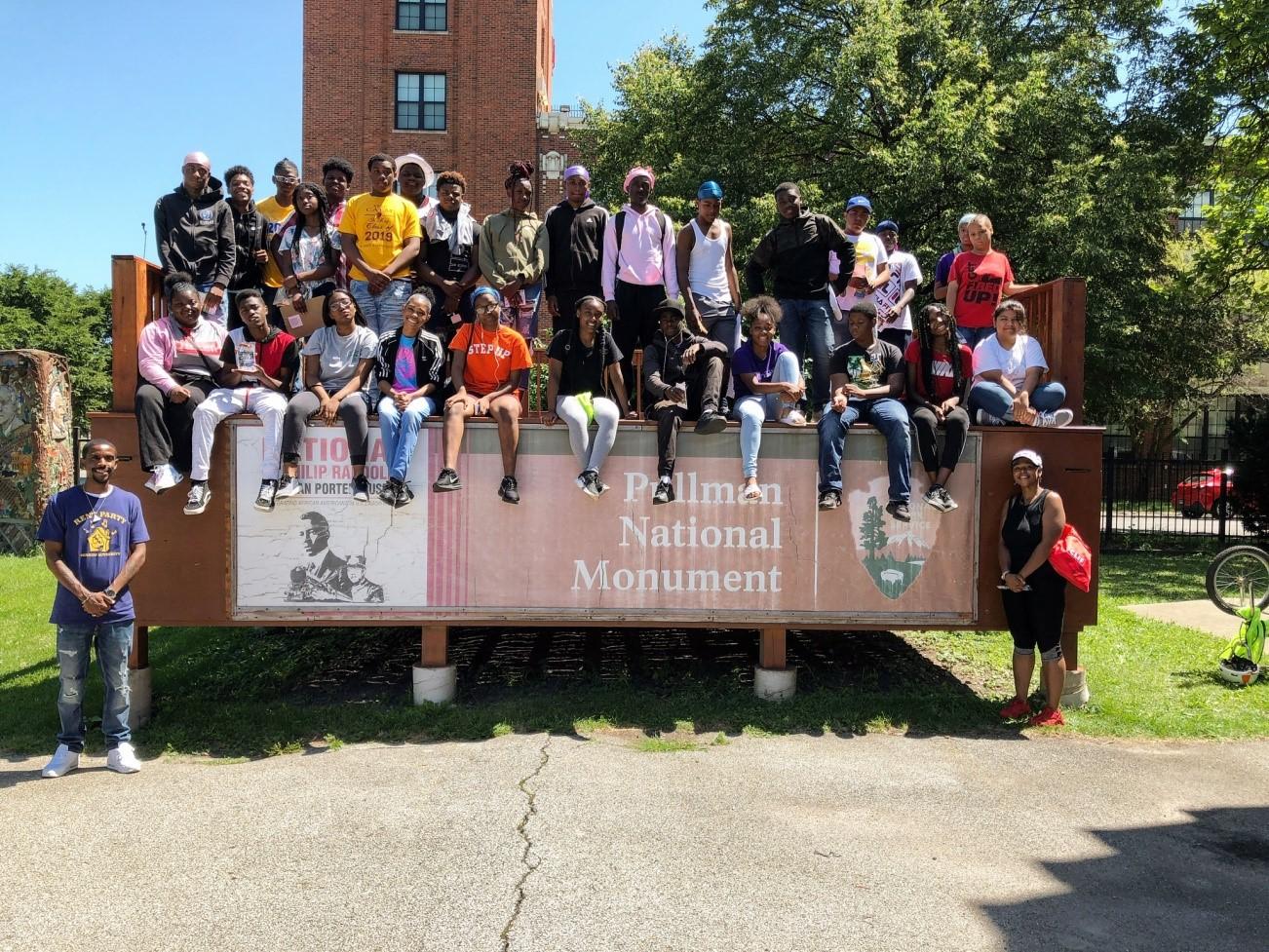
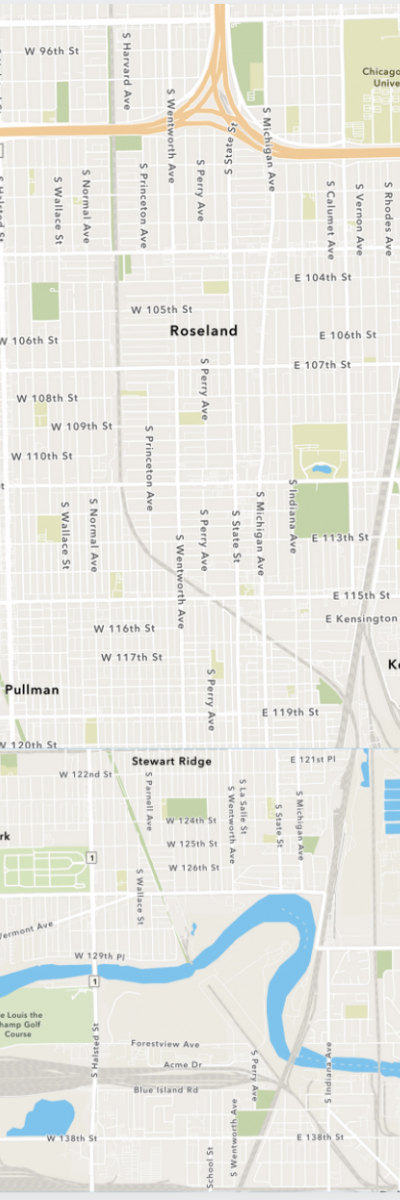
Bounded by 95th Street on the north, the City limits on the south, the Bishop Ford Expressway on the east, and I-57 on the west. The Far South Quality-of-life plan includes a focus on the following communities: Roseland, Altgeld Gardens, Calumet Heights, Cottage Grove Heights, Fernwood, Golden Gates, London Towne, Morgan Park, Pullman, Roseland Heights, Rosemoor, Washington Heights, and West Pullman.
Our Physical Assets and Landscapes: Natural Assets
The beauty of the natural assets of the Far Southside is unparalleled. From the Cal-Sag River and Channel "Calumet-Saganashkee Channel", which historically was a part of the underground railroad, that slaves used in their attempt to escape to freedom, to the Major Taylor Bike Trail named after legendary African American cyclist Marshall "Major" Taylor, part of the Cook County Forest Preserve's Dan Ryan Woods and the Chicago Park District, there is something to engage the residents as well as anyone wishing to explore the treasures that nature has to offer.
Park Districts and Community Centers
Several special park districts and community centers are located on the Far Southside that offers residents access to playgrounds, indoor and outdoor sports fields, basketball courts, educational programming, and computer learning, and shared space for community gatherings. Places to relax, play sports, host parties, connect with friends, and do so much more.
National APR Pullman Porter Museum & Pullman Visitor Center
Asa Philip Randolph and Pullman Porters were the men who made up the Brotherhood of Sleeping Car Porters (BSCP) union. Randolph was the chief organizer and co-founder of the BSCP, the first African-American labor union in the country to win a collective bargaining agreement. Under Randolph's leadership, the Pullman Porters fought a courageous battle for employment equality with the corporate giant, the Pullman Rail Car Company. The museum and the visitor center (information center) are a rich legacy for the community and the city.
Transit and Highways
The Far Southside of Chicago connects drivers and transit riders to the rest of the city through the Bishop Ford Freeway, a network of bus routes, the CTA Red Line train station. Plans are being developed to expand the Red Line, adding four more stops to the line increasing accessibility to and from the Far Southside. The proposed plan includes a stop at 103rd, 111th, Michigan Avenue and 130th Street.
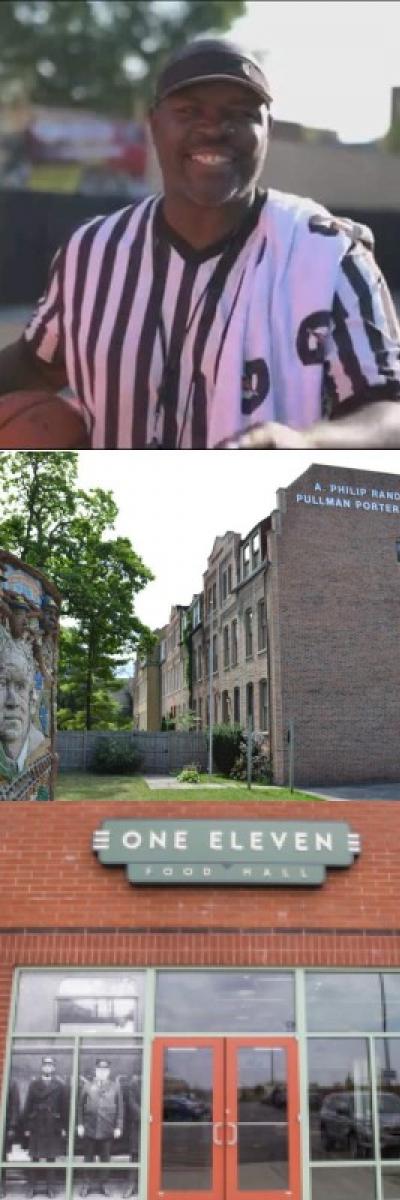
Our Assets: The People of the Far Southside
The individual assets and gifts of the Far Southside are the people that are a very diverse and multi-faceted mix of individuals, families, businesses, and organizations.
Our Cultural Assets: What We Do That Expresses Who We Are
The Far Southside is rich in unique cultural assets and traditions that magnify and define its importance to the community and the city. Far too many to list, these events honor the legacy of individuals who have positively impacted the community. They foster neighborhood pride and work together with our families and all the communities within our geographic area. Through fun, entertainment, and even educational activities that stabilize the community, these relationships unite, strengthen, and empower individuals and families to excel and improve their lives.
Our Local Economy: How We Exchange Goods, Services and Labor
Once known for its bustling business corridor on Michigan Ave, the area has been dramatically declining, but a new renewal era is rising. Resident business ownership and larger chain and retail businesses are bringing a revival to the site. Our roots stretch from long-time business staples such as Richard's Super Premium Ice Cream and Old Fashioned Doughnuts, which have city-wide acclaim. Our economic picture is changing, generating produce with Dutch Farms, Gotham Greens, Method Soap Factory, and newer businesses such as One Eleven Food Hall and Amazon. This transition is fueled by our community-driven and city projects such as Invest South West and the Chicago Neighborhood Initiative, to name a few.
Communication & Collaboration
Communication & Collaboration Goal:
The Far Southside of Chicago will close communication gaps and encourage collaboration.
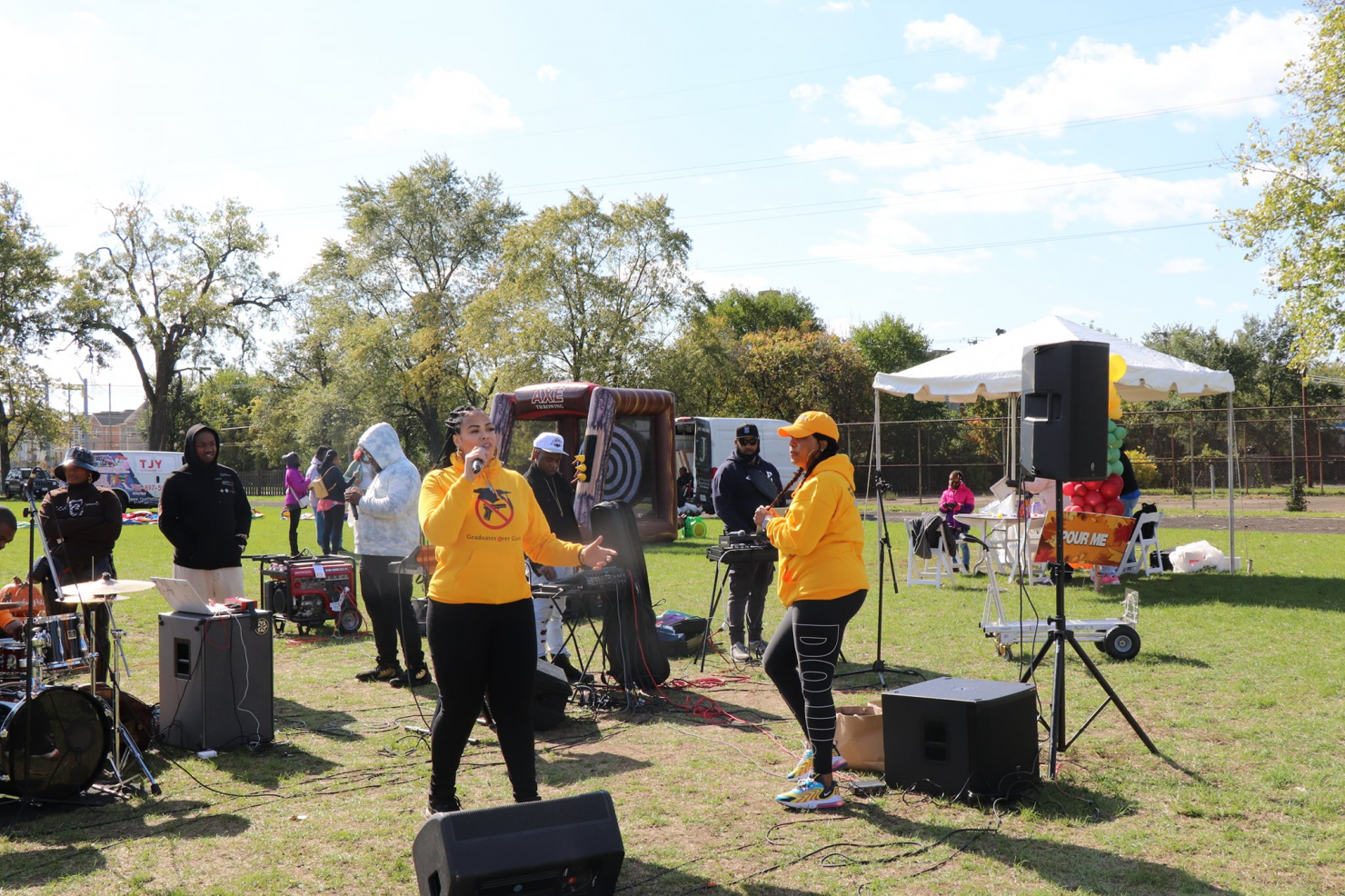
Collaborations will bring people together to share and enjoy the place where we live. As a community we are capable of policing ourselves and holding each other accountable with a village approach.
we have many senior citizens who raised generations of their families and give stability, historical knowledge, legacy, and strength to the community. but we are also transitioning:
55% of Far South residents are between the ages of 19 and 34
There are 100 block clubs in the community and many strong neighborhood associations
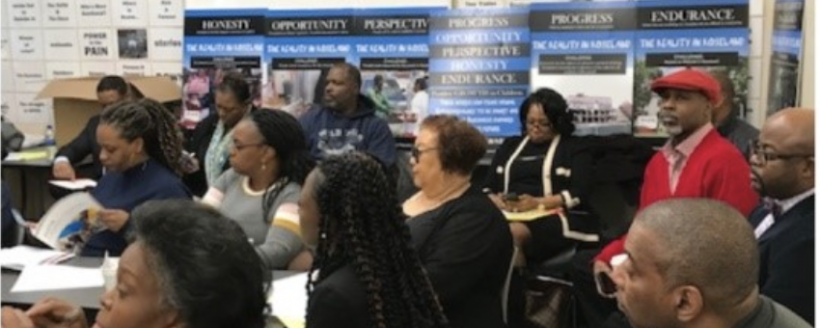
Convening this plan was a collaboration of Far South Chicago Coalition advisory board representing more than 26 local organizations. 95% of the members live in the community.
STRATEGY 1
Organize opportunities for leadership development & collective activities with residents of the Far South side
- Assemble a community policing action plan
- Host meet and greets and engage the community by offering resources and information as to how these programs work
- Create a campaign to invigorate new people to join the existing pool of faithful volunteers
Lead Advocates: Joyce Chapman (Far South Chicago Coalition), Marsha Eaglin (IMPACT Family Center), David Peterson (Randolph's Dream CDC), Elizabeth Johnson (Phalanx Family Services)
We hope to next engage: Kroc Center, United Way, Chicago Public Schools
STRATEGY 2
Streamline effective communication channels across the region
- Develop community newsletter on various social media and door to door materials
- Create a community portal/app with resources and opportunities in each area of the community
- Incorporate popular communication tools successfully used in the region like billboards
- Assemble local organizations focused on driving initiatives
Lead Advocates: Joyce Chapman (Far South Chicago Coalition), Marsha Eaglin (IMPACT Family Center), David Peterson (Randolph's Dream CDC), Elizabeth Johnson (Phalanx Family Services), Dr. Tonya Roberson (Governors State University)
We hope to next engage: 8th, 9th, 34th Ward Aldermen's Offices, Department of Family Support Services and other City Departments, Google, United Way
STRATEGY 3
Build scalable systems to measure outcomes of accountability and justice towards transformation
- Launch a community advisory board that has input on Aldermanic menu and TIF funds, and audits organizations and companies receiving those funds
- Identify owners of vacant properties and put pressure on them
- Activate existing and new block clubs with a needs assessment
- Promote high-quality intervention strategies and follow-up
Lead Advocates: David Peterson (Randolph's Dream CDC), Sandra Patterson (Cottage Grove Heights Community Coalition),Pauline Sylvain-Lewis (Phalanx Family Services)
We hope to next engage: Woods Funds Chicago, Department of Planning & Development, Microsoft
Housing
Housing Goal:
All residents of the Far Southside of Chicago will be empowered through homeownership and improved housing opportunities, especially our seniors.
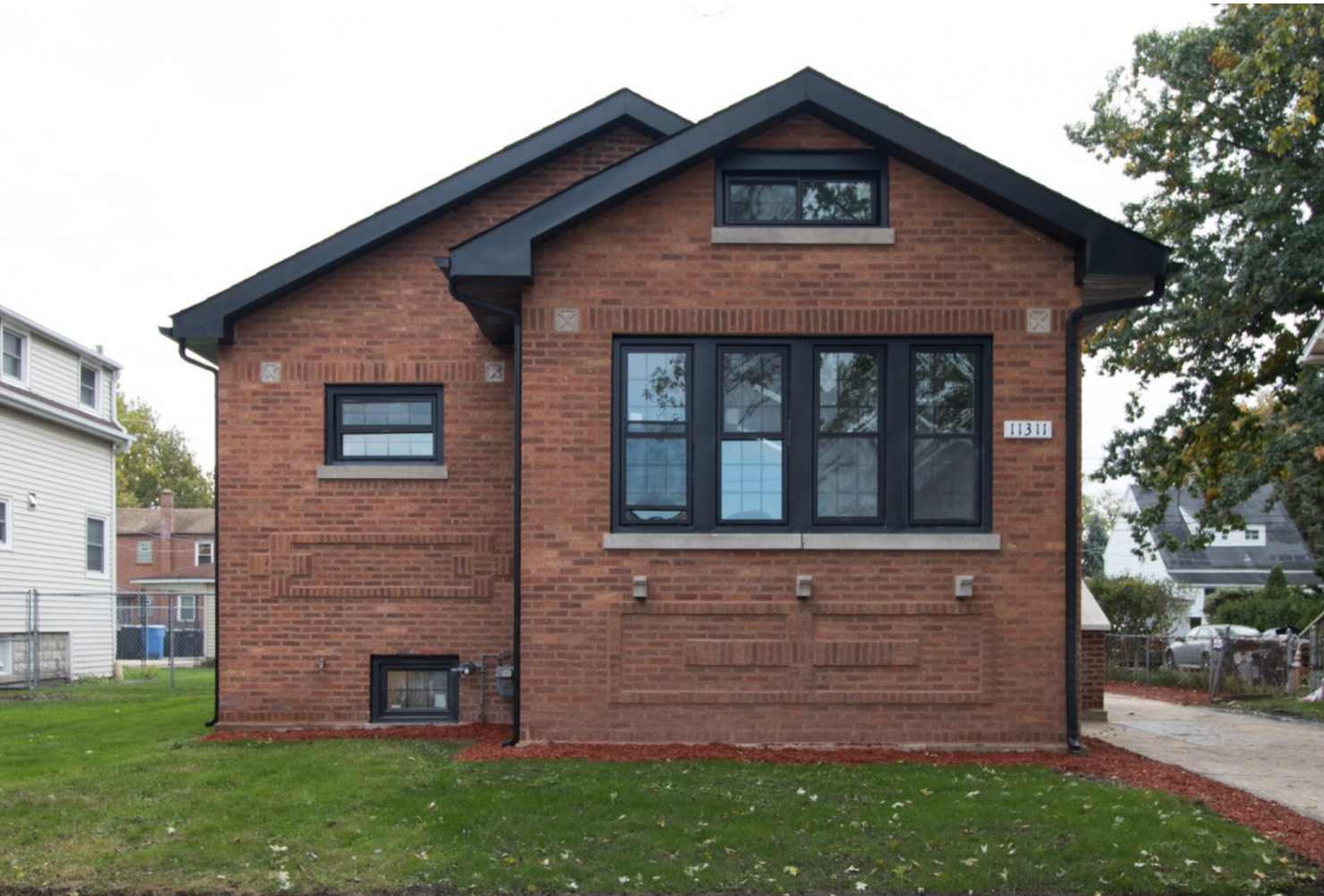
The Far South planning region has just over 38,000 households: 65% own their homes vs. 45% citywide.
In 2021, 829 CPS students were reported homeless in the 8th ward, 743 in the 34th ward and 602 in the 21st ward.
2.8% of our youth 24 years and under are unsheltered.

|
In 2020, the median first-time homebuyer was 34 years old. We have over 21,000 residents between the ages 35-49 and 20,000 between ages 5-19. |
STRATEGY 1
Expand homeownership programs and resources for homeowners to maintain their homes
- Support existing homeownership associations like Golden Gates Homeownership Association & London Towne Homes Cooperative, Inc.
- Launch resourced homeowners associations across the Far Southside of Chicago
- Advocate for preferred rates on loans for purchasing a home in the community
Lead Advocates: Sandra Patterson (Cottage Grove Heights Community Coalition), Deloris Lucas (Golden Gates Homeowners Association), JoAnn Kenner (London Towne Houses Cooperative, Inc.), David Doig (Chicago Neighborhood Initiatives) , Gloria Cosey (Rosemoor Community Association)
We hope next to engage: City of Chicago, US Bank, JP Morgan Chase, Woods Fund, Wells Fargo
STRATEGY 2
Regain vacant and abandoned houses back into community hands
- Acquire a listing of vacant residential properties for current and potential residents to purchase
- Organize interested homebuyers in the neighborhood to become ready homebuyers to take on homes
- Develop housing programs with Returning citizens in mind
- Build Senior housing and care facilities
- Advocate to develop homeless shelters
- Create affordable housing connected to financial literacy programs and resources
Lead Advocates: Sandra Patterson (Cottage Grove Heights Community Coalition), Deloris Lucas (Golden Gates Homeowners Association), JoAnn Kenner (London Towne Houses Cooperative, Inc.), David Doig (Chicago Neighborhood Initiatives), Gloria Cosey (Rosemoor Community Association), Rev. Elena Calloway (T.R.E.A.D)
We hope next to engage: Department of Housing, HUD, Far South CDC, All Chicago, State of Illinois, Neighborhood Housing Services
STRATEGY 3
Increase Black homeownership to counteract the Black exodus of Chicago
- Create a campaign to keep Black millennials in the community
- Assess needs of Black millennials for the region to become appealing
- Coordinate mortgage lenders offering grants for Black homeowners in Black communities
Lead Advocates: Gloria Cosey (Rosemoor Community Association), David Doig (Chicago Neighborhood Initiatives), Sandra Patterson (Cottage Grove Heights Community Coalition)
We hope next to engage: TRIBE, Salesforce, Guaranteed Rate
Economic Development
Economic Development Goal:
The Far Southside of Chicago will circulate and recycle the community dollar in Far South Chicago's Ethnic Wall Street by supporting each other economically.
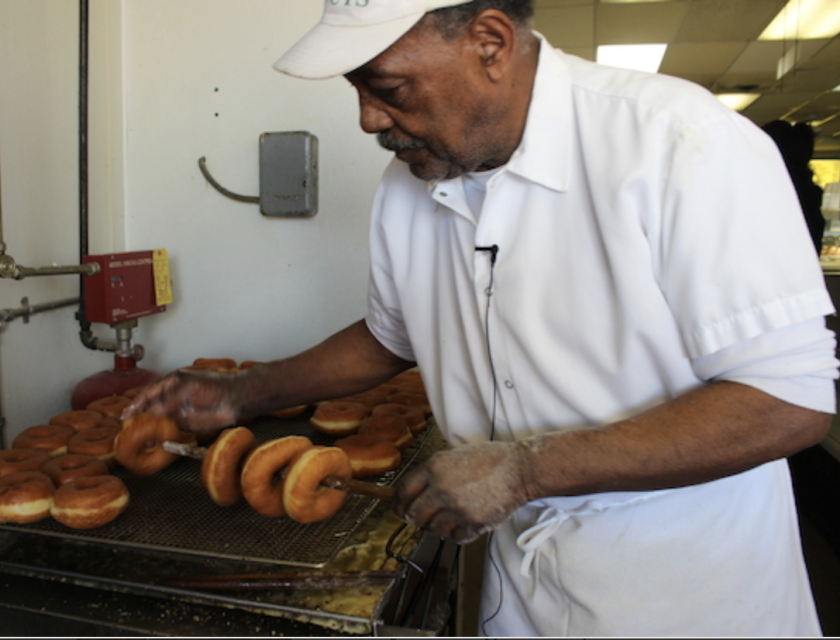
2020 saw an overall increase in buying power across the Far South communities, part of a national trend.
BY 2026
professional-business services, health care & social assistance, leisure-hospitality, retail trade and manufacturing
are projected to be the largest employing industries in Illinois (IDES DATA)
The Far South side is home to over 88% Black/African American residents.
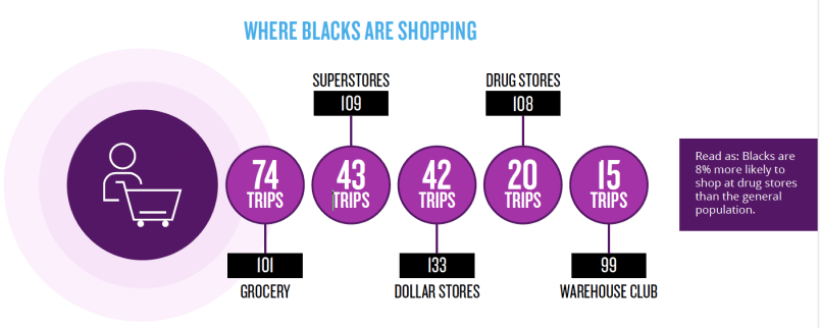
African American buying power rose to $1.6 trillion in 2020, or 9% of the nation’s total buying power (Selig Center, UGA)
STRATEGY 1
Create a safe environment for the community to live and shop
- Identify vacant store fronts for retail and shared kitchen incubators
- Bring a quality grocery store in Altgeld Gardens at 130th
- Assemble more stores and anchor businesses in our community like Nordstrom's Rack and premium outlet stores at 95th between Stony Island and Woodlawn
- Coordinate with community and Department of Streets and Sanitation on priority cleaning efforts
- Utilize positive business models with built in give back to the community to provide incentive to work and shop locally
-
Develop a fun entertainment complex with movie theater, boxing and roller rink
We hope next to engage: Cook County Land Bank, Chicago Cubs Charities, Trader Joes, Aldi, Mariano's, Pete's Fresh Market, Hyatt, Department of Streets & Sanitation, 8th & 34th Ward Aldermen, World Business Chicago, Navy Pier
STRATEGY 2
Strengthen opportunities for skills training and employment in the community
- Streamline skills training for community residents interested in the development and operation of the Red Line Extension
- Help bring a hotel and hospitality workforce center on 95th between Stony Island and Woodlawn
- Repurpose the building behind Carver Park and create an industry-focused trade center
- Create a Senior Hub/Coffee House and Wellness Building at the Roseland Medical District
Lead Advocates: Rev. Elena Calloway (T.R.E.A.D), Kim Tran (Chicago State University's Center for Workforce Equity)
We hope next to engage: Chicago Transit Authority, Hyatt, Clayco, Inc., Far South CDC
STRATEGY 3
Equip local entrepreneurs with resources
- Host regular opportunities for community members to gain knowledge to start a business
- Increase Black & Latino dollars staying within the community
- Support infrastructure and funding for Black-owned cooperatives and collectives like London Town Houses Cooperative, Inc., Golden Gates Homeownership Association
Lead Advocates: JoAnn Kenner (London Towne Houses Cooperative Inc.),Sandra Patterson (Cottage Grove Heights Community Coalition)
We hope next to engage: City of Chicago Business Affairs and Consumer Protection, other City Departments, National Black Chamber of Commerce
STRATEGY 4
Organize long range (10+ year) funding and support to move large projects forward in the Far Southside of Chicago
- Create investor pools through community collaborations
- Make City and State funding opportunities transparent within the community
- Examine efforts and implementation of projects done in the community
- Build relationships to challenge corporations like McDonald's and others
Lead Advocates: Pauline Sylvain (Phalanx Family Services), Sandra Patterson (Cottage Grove Heights Community Coalition), David Doig (Chicago Neighborhood Initiatives)
We hope next to engage: Wintrust Bank, State of Illinois, City of Chicago, Chicago Law Firms
Lead Advocates also covering Strategies 1 &2: Marsha Eaglin (IMPACT Family Center), Dallas Gordon (Washington Heights Workforce Center DESI)
Lead Advocates also covering Strategies (1-3): Deloris Lucas (Golden Gates Homeowners Association), Gloria Cosey (Rosemoor Community Association)
Lead Advocates also covering Strategies (1-4): David Doig (Chicago Neighborhood Initiatives), Pauline Sylvain-Lewis (Phalanx Family Services)
West Pullman Performing & Culinary Arts Incubator
Good Food & Arts from Within
- West Pullman community focus
- Collaborate but be distinctive from other similar enterprises - Kroc Center, Beverly Arts Centers
- Utilize vacant land or vacant buildings
- Post Secondary College resource center
- Hub for mentorship, internships, vocational services, and coding opportunities.
-
Community college partnership
The Far South Performing & Culinary Arts Business Incubator will be the first of its kind. We envision a state-of-the-art center for both entertainment and learning on the Far Southside. Highlighting both are local entrepreneurs to gain skills in both hospitality and business management. The West Pullman Culinary and Performing Arts Incubator will be a beacon and destination for the community offering continuing education courses and skill-building opportunities.
The Lamar Johnson Collaborative architects identified potential sites like 119th & Halsted and illustrated renderings below based off community listening sessions held in 2022.

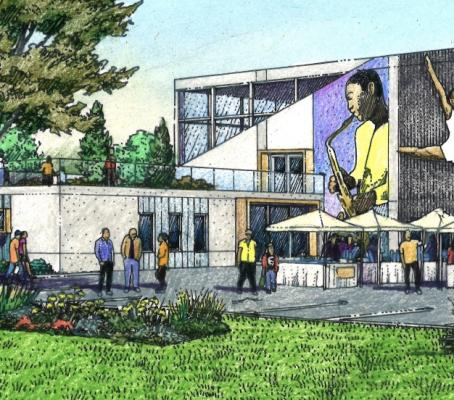
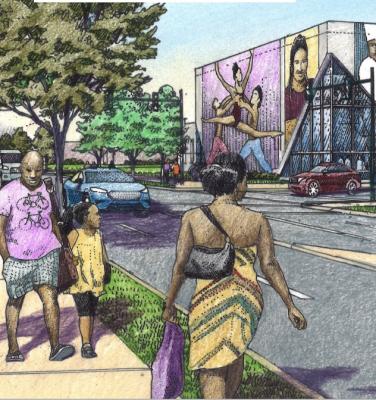
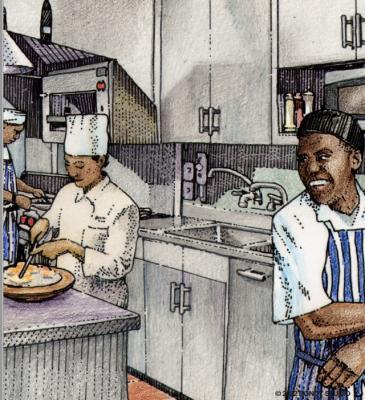
This building, as currently programmed is approximately 13,000sf gross. At current construction pricing, we anticipate the hard costs of this building to be approximately $400/sf for a total construction budget of $5.2mil. This number is for budgetary pricing only and does not include design fees, survey costs, land acquisition, FFE, consultant fees or engineers, cost estimating, permits, entitlements or rezoning.
RIverdale Grocery & Shopping Plaza
Access to Quality Food & Recreation
- Focus on Food Desert Area in Riverdale, Altgeld, Golden Gate
- Connect to Expressway
- Connect to Bike & Walking Trails
- Utilize Vacant Land
- Be sensitive to neighbors; low density, low height, large setbacks
- Balance with desire for Transit Oriented Development at the Red Line extension
- Meeting and virtual experience spaces
- Public seating and adaptable space for the Festival activities.
-
Black and Brown businesses to be providers of the goods and services
A shopping center is overdue in Riverdale. Many of our residents must travel out of the city limits or have limited access to quick bus systems to take residents to the Walmart on 111th Street. The grocery store concept will provide fresh, local food, small business incubation space and opportunities for community engagement.
The Lamar Johnson Collaborative architects identified potential sites like 130th & St. Lawrence and illustrated renderings below based off community listening sessions held in 2022.
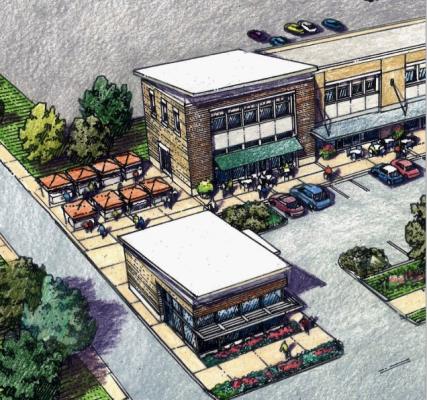
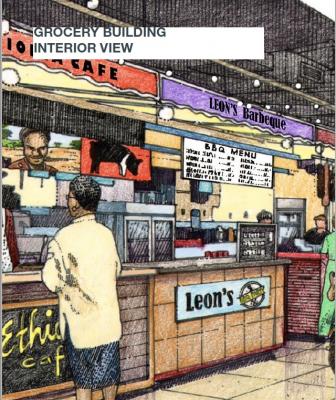
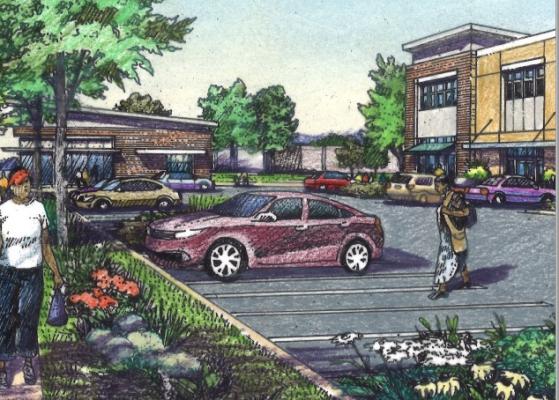
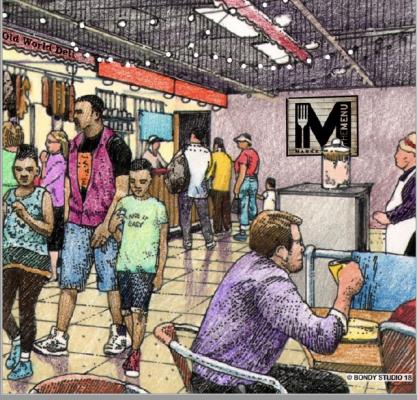
This building, as currently programmed is approximately 4,000 square feet gross. At current construction pricing, we anticipate the hard costs of this building to be approximately $250/sf for a total construction budget of $1 million. This number is for budgetary pricing only and does not include design fees, survey costs, land acquisition, consultant fees or engineers, FFE, cost estimating, permits, entitlements or rezoning.
Community Self-Care & Mental Health
Community Self-Care & Mental Health Goal:
The Far Southside of Chicago will remove the mental health stigma and provide more services to address the community towards self-care and caring for each other, especially our children in the legislative system.
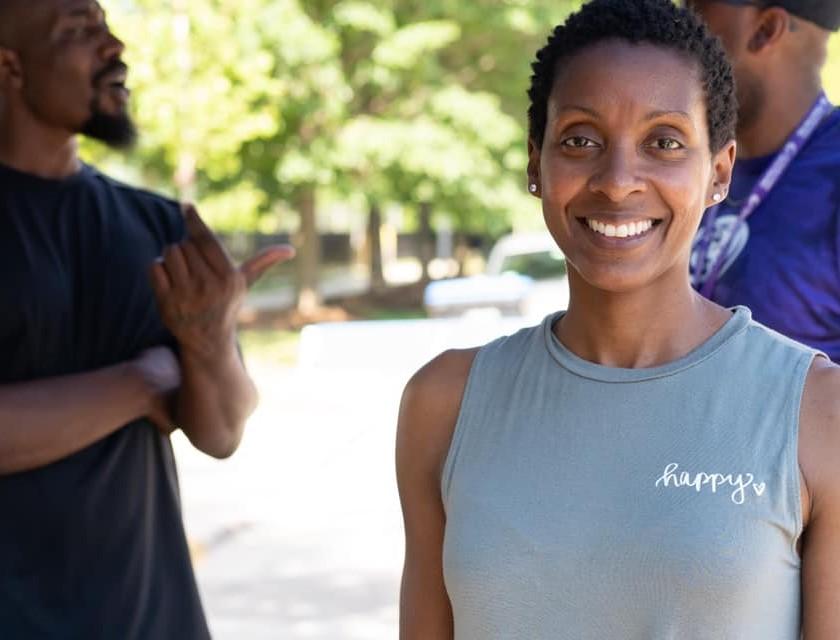
We count on our young people to hold adults accountable to being the example they need them to be. And our elders trust our youth to visualize the future of their neighborhoods.
29% of the detainees released from The Cook County Justice System return to the Roseland/West Pullman Area seeking housing and employment.
Our residents will have diverse resources to increase our mental health and opportunity for every generation in our community.
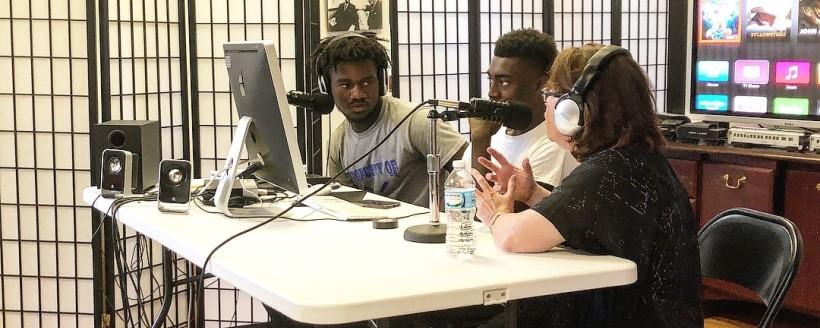
Youth (ages 24 and under) comprise 29.1% of the population in Roseland. Our young people will be the force to get our communities where they need to be.
STRATEGY 1
Coordinate awareness through open communication regarding the positive values of mental health treatment
- Establish more mental health facilities at places surrounding the Roseland Medical District
- Partner with providers for free mental health and family based counseling
- Invite more speakers to give virtual presentations on mental health
- Organize green and recreation spaces and recreation to reduce and prevent loneliness, grief, depression or despair
- Provide funding for open access to mental health services throughout the community that meets individuals where they are
- Correct situations and add funding where necessary for victims facing trauma
- Create self-help groups
STRATEGY 2
Reach our youth and growing adults with quality opportunities to engage in the community
- Build a youth center and cafe at a newly renovated firehouses like 119th & Peoria
- Provide youth training and preparation for entering the work world like the Red Line Extension.
- Support the Far South Youth Advisory Council
- Broaden support with students in the community involved in public systems
- Help youth create their youth action plan
- Celebrate our youth
- Engage with youth earlier to be a part of initiatives
- Build safe sites for homeless youth to live and become uplifted
STRATEGY 3
Increase support to Returning citizens to reinvent their second chance
- Develop tech training and bridge the digital divide
- Open workforce development housing across the region in abandoned firehouses
- Assemble a pipeline for Returning citizens invested in on major development projects such as the Red Line Extension
- Coordinate with the police department to connect recently released individuals with financial literacy and money management opportunities
Roseland Medical District
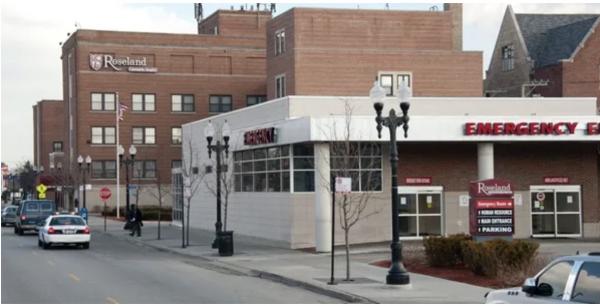
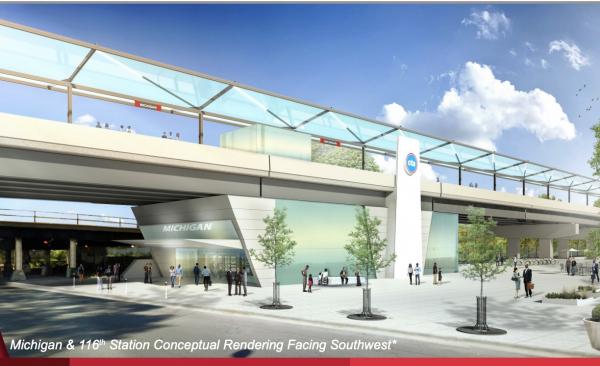
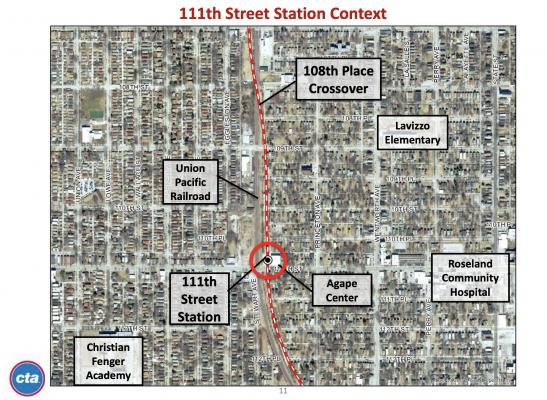

"It is widely recognized that hospitals and medical centers have the capacity to provide a strong, stabilizing presence to counterbalance some of the challenges that these neighborhoods face. These “anchor institutions” often possess a wealth of physical and economic assets, as well as political influence; all factors that can help spark a transformational reset of surrounding area conditions." Join us for updates and ways you can get involved!
Skills Centers
Far South Skill Centers
Suggested abandoned locations include but are not limited to:
- Historic C Building in Altgeld Gardens
- Closed CVS Pharmacy on 103rd South Halsted Street
- 115th & Normal Avenue
Preparing Our Future
Far South Skill Centers will be satellite sites to ensure that all women and men who want to work with their hands and earn a good living have equal access to information, training, and employment opportunities in the industry.
City-owned vacant land and abandoned institutions are excellent candidates to be restored and help build new careers within the Far Southside.
Culturally Vibrant Spaces & Environmental Justice
Culturally Vibrant Spaces & Environmental Justice Goal:
The Far Southside of Chicago will preserve and cultivate cultural pride by improving visibility and unity across the region through beautification, introductions to green economies and environmental justice.
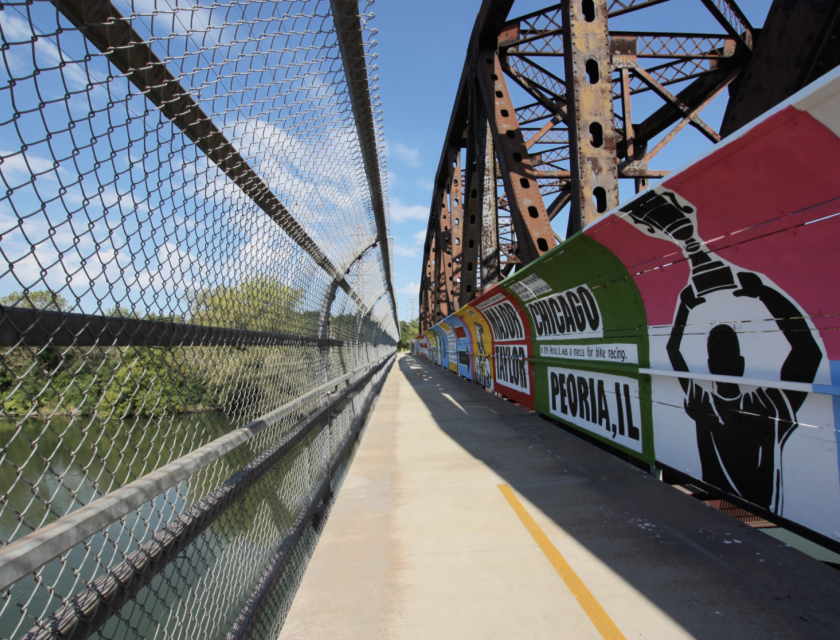
Through the maintenance of existing assets and beautification across our region, we have the opportunity to breathe fresh, clean air and restore facilities and vacant land.
The Far Southside is known for natural open space and Chicago's only National Monument.
We seek to better connect these assets, images and economic drivers to our community members.
"Our future is dependent on a conscious decision to understand the connection between green spaces and community health." - Juliette Tyson, Imani Village
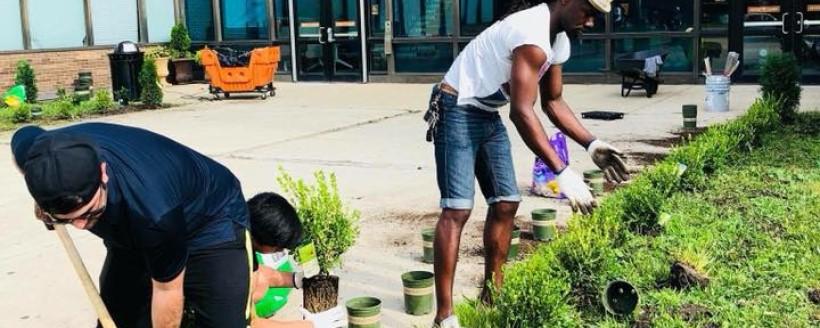
"We need to participate in the investment and wealth generation of crypto currency in a big way--training youth and adults. We must also not be just the patrons/consumers in the business of cannabis production and distribution, but we must own the farms and businesses related to all things cannabis. " - Marsha Eaglin, IMPACT Family Center
STRATEGY 1
Preserve the community with cultural pride
- Add more cultural murals
- Create self and community pride
- Identify places for historical landmarks
- Change the way others view our region and increase focus on community members
- Increase positive community images
- Sustain and build awareness of the National Pullman Monument and the National A Phillip Randolph Museum
Lead Advocates: Sandra Patterson (Cottage Grove Heights Community Coalition), David Doig (Chicago Neighborhood Initiatives), JoAnn Kenner (London Towne Houses Cooperative, Inc.), Juliette Tyson (Imani Village)
STRATEGY 2
Integrate environmental justice in repurposing vacant and abandoned infrastructure
- Identify old buildings and structures to create restoration plans
- Promote awareness, education and resources to support green and clean energy
- Cleanup projects between 130th to 138th
- Engage Block Clubs and homeowners to keep their community clean and planting flowers
- Repair Doty Road
Lead Advocates: Dallas Gordon (DESI-Washington Heights Workforce Center), Deloris Lucas (Golden Gates Homeowners Association), David Doig (Chicago Neighborhood Initiatives), David Peterson (Randolph's Dream Community Development Corporation), Juliette Tyson (Imani Village), Pauline Sylvain-Lewis (Phalanx Family Services)
STRATEGY 3
Open diverse green economies to our community
- Equip community members with workshops on entering the hemp, medical and recreational marijuana industry
- Investigate areas to open Black & Brown owned dispensaries
- Engage community members interested in joining the hemp/marijuana workforce
- Open large-scale hemp and marijuana plant
Lead Advocates: David Peterson (Randolph's Dream Community Development Corporation)
We hope next to engage: Olive Harvey College, Chicago State University

The Planning Process
This plan builds on and strengthens the relationships in the Far Southside of Chicago. In January of 2020, over 80 people representing agencies, businesses and individual residents of the communities met to form what became the Far South Chicago Coalition (FSCC). FSCC convened this planning process through a difficult two years of worldwide pandemic, but persevered to engage our community in every way we could because this united vision is more important than ever.
The Far South Chicago Coalition joined with LISC Chicago in the summer of 2020 to begin engagement towards the first-ever Quality-of-Life Plan on the Far Southside. FSCC and its members and partners hosted dozens of events through the Fall and into 2021, both in-person and virtual. In early 2021, FSCC completed its About Our Community report summarizing the assets and opportunities this preliminary work surface and began sharing this across the community. With a strong and diverse advisory committee of 26 leaders and stakeholders from the many communities that make up the Far South, FSCC and LISC agreed to proceed into planning together and confirmed Phalanx Family Services as the convening agency stewarding the effort. The advisory committee members all engaged the networks they represent across the community, and FSCC undertook a series of community meetings residents could attend in person or virtually over the course of six months. These events, intentionally located across the Far South region, engaged hundreds of community residents who gave feedback and shared their passions and visions. Many of those who attended joined in the effort and this plan represents these many viewpoints on where we as a community intend to focus our collective work.
But this is a living document. We will continue updating our action plans and supplementing this plan as needed based on the collective vision we've created together.
Convening Agency: Phalanx Family Services for FSCC
The Far South Chicago Coalition (FSCC) is composed of caring community leaders, business owners and engaged residents working together to create a thriving community that will exemplify the gold standard of Chicago neighborhoods.
Phalanx Family Services (Phalanx) has existed since 2003 to assist economically disadvantaged youth and families in the pursuit of self-sufficiency through employment-centered programs, mentoring, advocacy, and workforce development solutions. Located in the West Pullman community, Phalanx houses an array of holistic programs and services to help individuals and families within West Pullman and far Southside communities improve their quality of life, thereby accomplishing its mission. We provide workforce development and training programs that aid unemployed, and underemployed individuals to learn valuable and essential job skills for career placement and advancement. Phalanx also provides wraparound services such as housing assistance, emergency food, cash payment assistance, utility payment assistance, obtain personal identification documents, and other crucial services that typically impact low-income populations. The organization's motto, "Building Strong Families," proves, with support, that every family can be empowered to transform their communities.
LISC Chicago
With residents and partners, LISC forges resilient and inclusive communities of opportunity across America—great places to live, work, visit, do business and raise families. Since 1979, LISC has invested $20 billion to build or rehab 400,500 affordable homes and apartments and develop 66.8 million square feet of retail, community and educational space. For more information, please visit lisc.org/chicago.
Embedded in LISC’s founding, and strengthened over the last two decades, we are committed to comprehensive community planning. This planning process is essential to building the local capacity to effectively connect to the right resources to achieve fundamental change and long-lasting results in our communities. In the late 1990s, Local Initiatives Support Corporation. with leadership support from the John D. and Catherine T. MacArthur Foundation, created the New Communities Program (NCP), a groundbreaking, bottom-up, comprehensive community planning effort in which LISC supports the development of Quality-of-Life Plans (QLPs) by community leaders and residents in Chicago neighborhoods.
As of 2021, 28 QLPs have been created, garnering more than $1B in new investments aligned in support of community visions in neighborhoods across Chicago.
FSCC, Phalanx and LISC thank the major funders of the 2020-2021 Quality-of-Life Planning process:
The Chicago Community Trust
US Department of Housing and Urban Development
For More Information:
Far South Chicago Coalition
837 W 119th St
Chicago , IL 60643
United States
Phalanx Family Services
837 W 119th St
Chicago, IL 60643
United States
LISC Chicago
10 S. Riverside Plaza, Suite 1700
Chicago, IL 60606
United States








